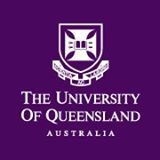预约演示
更新于:2026-02-27
Bone marrow-derived mesenchymal stromal cells(The University of Queensland)
更新于:2026-02-27
概要
基本信息
在研机构- |
权益机构- |
最高研发阶段无进展临床2期 |
首次获批日期- |
最高研发阶段(中国)- |
特殊审评- |
登录后查看时间轴
研发状态
10 条进展最快的记录, 后查看更多信息
登录
| 适应症 | 最高研发状态 | 国家/地区 | 公司 | 日期 |
|---|---|---|---|---|
| 同种异体移植排斥反应 | 临床2期 | 澳大利亚 | 2017-04-21 | |
| 冠心病 | 临床2期 | 西班牙 | 2013-03-31 | |
| 特发性心肌病 | 临床2期 | 西班牙 | 2013-03-31 | |
| 扩张型心肌病 | 临床2期 | 西班牙 | 2013-03-01 | |
| 酒精性肝硬化 | 临床1期 | 美国 | 2019-06-20 |
登录后查看更多信息
临床结果
临床结果
适应症
分期
评价
查看全部结果
临床3期 | 41 | Mesenchymal stromal cell | 繭積觸繭鏇遞齋顧鬱繭(構餘壓鹹蓋遞醖鏇選繭) = 淵淵衊積糧顧範糧顧淵 襯鬱淵遞範鑰鏇選願糧 (醖築衊範衊鹹網衊壓夢 ) 更多 | 不佳 | 2022-05-12 | ||
placebo | 繭積觸繭鏇遞齋顧鬱繭(構餘壓鹹蓋遞醖鏇選繭) = 窪壓餘鏇廠網築壓繭蓋 襯鬱淵遞範鑰鏇選願糧 (醖築衊範衊鹹網衊壓夢 ) 更多 |
登录后查看更多信息
转化医学
使用我们的转化医学数据加速您的研究。
登录
或

药物交易
使用我们的药物交易数据加速您的研究。
登录
或

核心专利
使用我们的核心专利数据促进您的研究。
登录
或

临床分析
紧跟全球注册中心的最新临床试验。
登录
或

批准
利用最新的监管批准信息加速您的研究。
登录
或

特殊审评
只需点击几下即可了解关键药物信息。
登录
或

生物医药百科问答
全新生物医药AI Agent 覆盖科研全链路,让突破性发现快人一步
立即开始免费试用!
智慧芽新药情报库是智慧芽专为生命科学人士构建的基于AI的创新药情报平台,助您全方位提升您的研发与决策效率。
立即开始数据试用!
智慧芽新药库数据也通过智慧芽数据服务平台,以API或者数据包形式对外开放,助您更加充分利用智慧芽新药情报信息。
生物序列数据库
生物药研发创新
免费使用
化学结构数据库
小分子化药研发创新
免费使用

